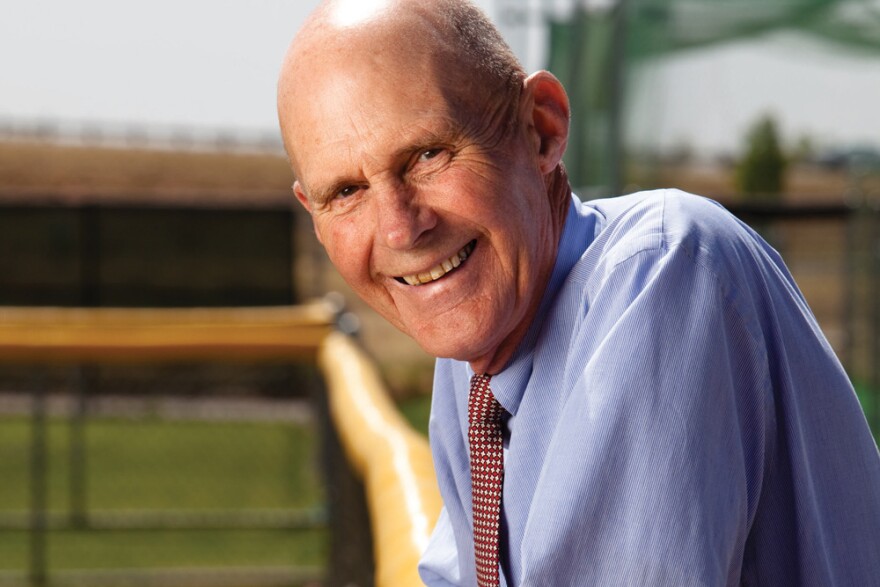If you’ve spent any time around Texas Tech the past few decades, you’ve likely heard of or met Bill Dean. The man who’s led the university’s alumni association since 1978 and taught journalism for 51 years. He is retiring at the end of this month. His years around campus have garnered him numerous awards and recognitions.
Now, though, he’s getting ready to simplify his life. He will continue to be an associate professor and teach in the College of Media and Communications.
Dean says he’s most proud of the growth of the alumni association. “I think our association has grown. Our membership has grown. Our funding has grown. Our building has obviously grown—it was just the old president’s home, and then we built this part, which we called the Market Alumni Center. Then we doubled the size of it and it became the McKenzie Marketplace Center.”
Most universities get 7 percent of graduates to support their alumni associations. Dean says Texas Tech percentage is more than double that. “We’re around 19. That’s not bad. Our board thinks, oh we aught to do so much better, and we try, but it’s a tough sell for these millennials,” Dean says. “People say well look at all the alumni you have graduated and the addressable alumni, why don’t you have more than 32 thousand members? Because at most public universities, like Tech, the majority are never givers. It’s just that a lot of kids here want to get their degree and get the hell out of here and they don’t ever want to come back. That’s true at most public universities…plus it costs so much, they graduate with all this debt. They say, ‘What, give back? I’m trying to pay back.’”
Dean’s best memory is the association’s standing. It operates independently from the university and the system. “I think the thing that stands out to me the most is the fact that we’ve established ourselves as a credible partner with the university. Our relationships with the president’s office, chancellor’s office, institutional advancement is good and strong. You don’t see that everywhere. I go to these alumni meetings of alumni directors and I listen to the fights and feuds they have with development and president and athletics. We don’t have too many problems with athletics, we’ve had a pretty cordial relationship with athletics. But I’m especially proud of the fact that we are viewed by the president and the powers at be as a very creditable part of Texas Tech,” he says.
The 80-year-old Dean is quick to recall his worst memory. “When we fired Mike Leach. That was by far the worst because he was a very popular coach. The perception was the we cheated him out of his bonus, because they fired him the day before his bonus came due. I responded to over 25 hundred emails, letters and phone calls in the space of about a month.”
Here are just a few of the awards Dean’s gotten: Best Teacher at Texas Tech 14 times; President's Teaching Award for Excellence twice; the Mass Communications Outstanding Alumnus Award both in 1997. Last year the College of Media & Communication honored him with its first Lifetime Service Award.
Dean, a Lubbock native who played baseball for Texas Tech, says he has no timeline for how long he’ll continue to teach.
“I don’t have any limit on that, as long as I enjoy what I’m doing and my health is good, I’m going to continue to do it. I get pretty good ratings, so I guess everything is going pretty good right now. They send back the feedback, I kept seeing the word goat in these evaluations and I thought oh my gosh, maybe they mean billy goat. Well it turns out it doesn’t mean that, it means greatest of all time. So, I guess that’s good.”
Dean says he’s got the utmost confident in Curt Langford, the Tech alum chosen to step into his shoes. And he lauded Tech for its efficiency. “I strongly believe that Texas Tech University has done more with less than most of our competition.”



